2024 Class of MGB-SIAM Early Career Fellows
SIAM is excited to announce the 2024 Class of MGB-SIAM Early Career Fellows. These accomplished early career professionals were chosen based on their achievements; active support of diversity, equity, and inclusion in their communities; and dedication to industrial and applied mathematics, computational science, and data science.
The MGB-SIAM Early Career Fellowship is a collaborative initiative by Mathematically Gifted & Black (MGB) and SIAM, aiming to foster prolonged engagement of fellows within SIAM and ensure their continued success in the broader applied mathematics and computational sciences community. This program recognizes the achievements of early career applied mathematicians — with a particular focus on those from racial and ethnic groups historically excluded from the mathematical sciences in the United States — and provides professional activities and career development. The 2024 fellows were chosen by a selection committee consisting of the SIAM Vice President for Equity, Diversity, and Inclusion; MGB representatives; and SIAM members.
SIAM extends heartfelt congratulations to these eight members of the community for their well-deserved recognition as the 2024 Class of MGB-SIAM Early Career Fellows. Read more about our newest fellows.
- Daniel Alejandro Cruz, University of Florida
- Chrisy Xiyu Du, University of Hawai`i at Mānoa
- Emmanuel Fleurantin, George Mason University
- Sarafa Adewale Iyaniwura, Los Alamos National Laboratory
- Kristin Kurianski, California State University, Fullerton
- Pablo Moriano, Oak Ridge National Laboratory
- Fatoumata Sanogo, Bates College
- Zerotti Woods, Johns Hopkins University Applied Physics Laboratory
Dr. Daniel Alejandro Cruz
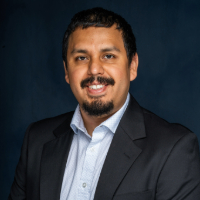
Dr. Daniel Alejandro Cruz is a postdoctoral associate in the Laboratory for Systems Medicine at the University of Florida (UF). He received his Ph.D. in mathematics from the University of South Florida (2019). He then held a visiting assistant professor position at the Georgia Institute of Technology before joining the UF lab (2022). Additionally, he has been a SIAM member for five years.
Dr. Cruz’s research focuses on the mathematical analysis of biological and medical models. He works on multiscale and agent-based models in particular, and considers questions associated with model validation, personalization, and forecasting. Some of the methods that he uses include topological data analysis and data assimilation.
Why did you apply for this fellowship?
Dr. Erica Graham, a professor whom I met at a conference this past summer, recommended that I apply for the fellowship. When I looked into the responsibilities, I realized that a lot of the work aligned with activities I already engage in, and I got really excited about being able to attend SIAM conferences and engage with the SIAM community further.
What are you most looking forward to as an MGB-SIAM Early Career Fellow?
I really enjoy organizing minisymposia which highlight the work of other mathematicians from historically underrepresented groups. So, while I am eager to expand my professional network, I am most looking forward to creating spaces and conversations through the minisymposia that I will organize at future SIAM conferences.
Chrisy Xiyu Du, University of Hawai`i at Mānoa
Watch the video below to learn more about Dr. Chrisy Xiyu Du and her motivations for applying to be an MGB-SIAM Early Career Fellow, as well as what she hopes to take away from the fellowship.
Emmanuel Fleurantin, George Mason University
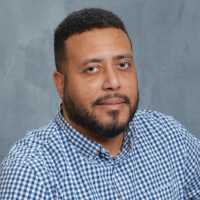
Dr. Emmanuel Fleurantin is an NSF Mathematical and Physical Sciences Ascending Postdoctoral Fellow at George Mason University. As a mathematician he specializes in applied dynamical systems, computational mathematics, and data assimilation. Dr. Fleurantin earned his Ph.D. and master’s degree in mathematics from Florida Atlantic University and has been a SIAM member for eight years.
As a postdoctoral researcher, Dr. Fleurantin's work centers around developing analytical and computational tools for diverse problems. He investigates phenomena like critical transitions in complex systems, leveraging the strengths of both theory and simulation, to address stability challenges in boundary value problems. Additionally, he explores data assimilation methodologies for solving real-world challenges in the natural sciences.
Why did you apply for this fellowship?
Applying for this fellowship presented an exciting opportunity to expand my network within the vibrant SIAM community, particularly forging lasting connections with fellow mathematicians from underrepresented groups. This would not only broaden my professional horizons but also allow me to contribute to building a more inclusive and diverse mathematical landscape. The prospect of receiving structured and informal mentorship from esteemed figures in the field was a major draw for me as well. I believe that I will greatly benefit from their guidance and insights as I chart my course through the next phase of my academic career.
What are you most looking forward to as an MGB-SIAM Early Career Fellow?
As a fellow, I envision myself partnering with my fellow early career researchers co-organizing minisymposia that bridge the gap between established scientists and ascending talent. I plan to dedicate time to mentoring SIAM student members from underrepresented groups, sharing guidance, and fostering their academic confidence. I am eager to connect with my fellow researchers, exchange ideas, forge collaborations, and learn from their experiences. Finally, I am excited to participate in workshops and programs that will propel me along my academic trajectory.
Sarafa Adewale Iyaniwura, Los Alamos National Laboratory
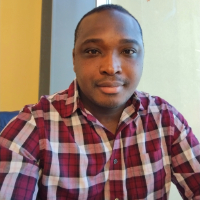
Dr. Sarafa Adewale Iyaniwura is a postdoctoral research associate in the Theoretical Biology and Biophysics group at Los Alamos National Laboratory (LANL). Born and raised in Nigeria, Dr. Iyaniwura obtained his B.Sc. in mathematics from the University of Ilorin, his M.Sc. in mathematical sciences from the African Institute for Mathematical Sciences, and his Ph.D. in applied mathematics from the University of British Columbia (UBC). While at UBC, he was a member of the Institute of Applied Mathematics.
Dr. Iyaniwura’s research interests lie in using mathematical models to gain insight into complex biological systems. He is interested in developing mathematical frameworks for calculating the mean first passage time for active and passive Brownian particles to escape a region and applying this phenomenon to biological systems. He’s also interested in using reaction-diffusion systems to study collective behavior among biological cells, quorum sensing, and diffusion-mediated communication.
Furthermore, Dr. Iyaniwura uses mechanistic mathematical models to study infectious diseases at the individual and population levels. He uses stochastic and deterministic models and data science techniques. The deterministic models are analyzed using asymptotic analysis, bifurcation analysis, strong localized perturbation theory, and local stability analysis. He also uses numerical techniques such as the finite difference method, finite element method, and the closest point method. Dr. Iyaniwura informs his models with biological datasets and calibrates them to these datasets using maximum likelihood estimates and Bayesian inference framework. He also collaborates with biologists, experimentalists, clinicians, and public health officials to provide insight into their datasets and provide them with modeling support.
Why did you apply for this fellowship?
As an early career researcher, having this fellowship and joining the SIAM community will provide me with the platform to increase my professional network, thus enhancing my professional development. Being a SIAM member will also increase my research visibility and facilitate collaborations with other SIAM members. This fellowship will also provide me access to SIAM career and networking programs, the latest publications, and grants and awards to attend conferences.
What are you most looking forward to as an MGB-SIAM Early Career Fellow?
As an MGB-SIAM Early Career Fellow, I look forward to contributing innovative applied and computational mathematics research that will contribute to scientific and engineering development, while mentoring graduate and undergraduate students through the numerous MGB and SIAM mentorship programs. I will participate in SIAM activities and promote diversity, equity, and inclusion in all aspects of the community, including encouraging representation of underrepresented groups at leadership levels. Lastly, I will promote a friendly environment for collaboration.
Kristin Kurianski, California State University, Fullerton
Watch the video below to learn more about Dr. Kristin Kurianski and her motivations for applying to be an MGB-SIAM Early Career Fellow, as well as what she hopes to take away from the fellowship.
Pablo Moriano, Oak Ridge National Laboratory
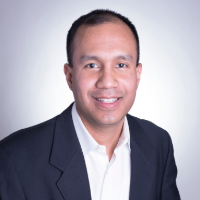
Dr. Pablo Moriano is a research scientist in the Computer Science and Mathematics Division at Oak Ridge National Laboratory. He received M.S. and B.S. degrees in electrical engineering from Pontificia Universidad Javeriana in Colombia before earning his Ph.D. and M.S. degrees in informatics from Indiana University Bloomington.
Dr. Moriano's research lies at the intersection of data science, network science, and cybersecurity. In particular, he uses data-driven and computational methods to discover and understand anomalous behavior in large-scale networked systems. He relies on this approach to design and develop innovative solutions. Applications of his research range across multiple disciplines, including the detection of exceptional events in social media, internet route hijacking, insider threat behavior in version control systems, and intrusion detection in cyber-physical systems. Additionally, Dr. Moriano is a senior member of IEEE, a member of ACM, and has been a SIAM member for four years.
Why did you apply for this fellowship?
As diversity matters in science, I see the MGB-SIAM Early Career Fellowship as an extraordinary opportunity to learn from the other fellows about how they inspire mentees in their networks, and what role networks and connections also play in their success. I have a strong personal desire to learn from their experiences to be a better mentor for underrepresented scientists. As one of the key aspects of my work includes mentoring students and early career scientists, I am fully committed to fostering a diverse workforce and an equitable and inclusive workplace culture that values the diversity of people, ideas, cultures, and educational backgrounds. This has shown to be effective in unlocking innovation that is required to embrace the current most pressing challenges of the world. There is no doubt that I will be better equipped for this endeavor during the MGB-SIAM Early Career Fellowship.
What are you most looking forward to as an MGB-SIAM Early Career Fellow?
I am mostly looking forward to networking. This fellowship will allow me to expand my network with outstanding junior and senior scientists. In terms of scientific exchange, this fellowship will allow me to engage with people in my area of expertise by incentivizing my participation in SIAM conferences. Additionally, this fellowship will encourage me to have an active role in organizing minisymposium in my research area, such as the 2024 SIAM International Conference on Data Mining (SDM24), and as well as presenting in events like the Workshop Celebrating Diversity at the 2024 SIAM Annual Meeting (AN24) .
Fatoumata Sanogo, Bates College
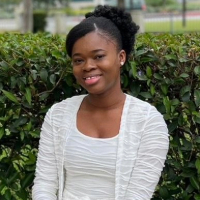
Dr. Fatoumata Sanogo is an assistant professor of mathematics in the Department of Mathematics at Bates College. Originally from Ivory Coast, she received her undergraduate degree in mathematics and graduate degree in applied mathematics at the University of Alabama at Birmingham, where she was the president of the SIAM student chapter. She has also been a SIAM member for six years.
Dr. Sanogo’s work is at the intersection of mathematics, statistical learning, and image/video restoration. More specifically, her interests are in applied and computational mathematics, such as numerical multilinear algebra, computational control, and optimization, with application areas in signal and image processing and analysis of environmental and biological data.
Why did you apply for this fellowship?
I applied for this fellowship to expand my network, interact with other fellows within the SIAM community. More importantly, I would like to improve the visibility of underrepresented experts in applied and computational mathematics. This fellowship is an opportunity to be more involved with the SIAM community but also support SIAM's mission to promote diversity, equity, and inclusion.
What are you most looking forward to as an MGB-SIAM Early Career Fellow?
I look forward to getting to know other applied mathematicians from underrepresented groups and developing relationships as colleagues and collaborators. I’m also eager to be more involved with the SIAM community and helping build a larger community of researchers from underrepresented groups. I am particularly excited about organizing minisymposia with my cohort, as well as having open discussions about diversity in mathematics and how we can effectively represent and advocate for our communities.
Zerotti Woods, Johns Hopkins University Applied Physics Laboratory
Watch the video below to learn more about Dr. Zerotti Woods and his motivations for applying to be an MGB-SIAM Early Career Fellow, as well as what he hopes to take away from the fellowship.
Stay Up-to-Date with Email Alerts
Sign up for our monthly newsletter and emails about other topics of your choosing.



